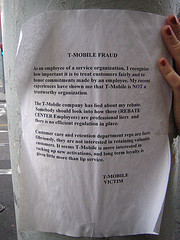 Fraud laws differ, depending on the fraud that is committed. Laws that cover fraud outline regulations and rules about certain areas. These areas include counterfeiting, identity fraud, insurance fraud and more. Fraud is a violation of civil law through deception.
Fraud laws differ, depending on the fraud that is committed. Laws that cover fraud outline regulations and rules about certain areas. These areas include counterfeiting, identity fraud, insurance fraud and more. Fraud is a violation of civil law through deception.
Individual fraud varies from those that affect organizations and groups. This certain fraud form is one that targets a single individual directly. Examples of this fraud is advance fee frauds, holiday club fraud, insurance broker scams, land banking scams, pension liberation scams, premium rate phone fraud, pyramid schemes, share sale fraud and many more. There are fraud laws that relate to this kind of fraud.
A corporate fraud is any account of business-targeted fraud or sector-specific fraud. Examples include application fraud, account takeover, business directory fraud, bankruptcy-related fraud, and check overpayment fraud, fake invoice scams, false accounting, government agency scams, mortgage fraud, mobile phone fraud and more. A public sector fraud occurs through services or services that fall prey to fraudulent acts. Corruption and bribery is facilitated by judicial and administrative affairs. All cases are brought to prosecution except for exceptional instances where vital factors may apply. Public interest is the foremost in prosecution due to the nature of the offense and the extent on which the public confidence is abused.